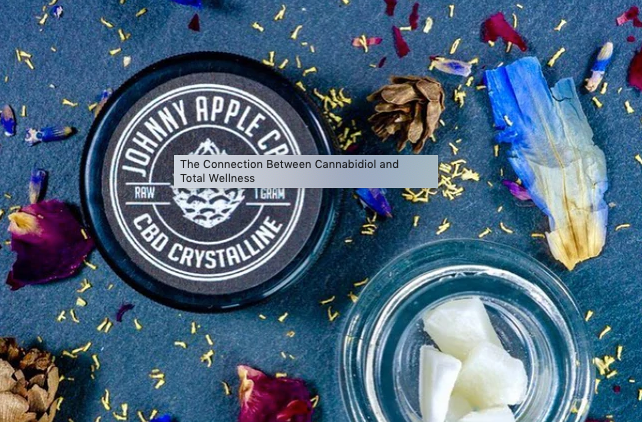
THE CONNECTION BETWEEN CANNABIDIOL AND TOTAL WELLNESS
When you make a decision to order a super-sized meal (i.e. including a burger, fries, and a giant soda), you know it's bad for your body. There is a lot of sodium, sugar, carbs, fat, and preservatives in a fast food meal that harm your body's systems and pull it out of balance. Most often, you might temporarily satisfy a junk food craving and get a sugar rush from this meal. Within an hour or two of eating, maybe sooner, you may get a stomach ache or intestinal spasms and feel sluggish. Some workers even experience brain fog in the afternoon, becoming less productive after lunch. That's because those harmful ingredients have assaulted your body, which may have been balanced before the McDonalds binge. You regret the decision, but you will forget those negative feelings the next time you stop there. Now, consider why people are using cannabidiol (CBD) for total wellness. There's some thinking that the body is doing the same thing, meeting the needs for positive feelings, specifically within the workings of the endocannabinoid receptor system. We explain this below:
HOW CANNABIDIOL (CBD) WORKS
The discovery of the effectiveness of cannabidiol can actually trace its roots back to the work of Gaoni and Mechoulam, who were researching the Cannabis sativa plant in 1967 and discovered that the main ingredient of the plant was tetrahydrocannabinol or THC. Their research led to the understanding that there is a naturally occurring (or endogenous) receptor system within the human body that allows it to experience the effects of THC. Let's restate that: the body already has the mechanism to respond to the chemicals that are also found in the plant. The endocannabinoids were named after the plant that was used in the same research. Further research in the nineties revealed that there were two types of cannabinoid receptors in the body — CB1 and CB2. CB1 is mostly found in the brain and the central nervous system, whereas CB2 is mostly found outside the central nervous system and is more often associated with the immune system. Later science also revealed that patients using CBD extract (cannabidiol), such as by placing CBD tincture drops under the tongue, would experience anxiolytic effects in their body.
THE POSITIVE EFFECTS OF CBD
What is anxiolytic? That's what many people ask when they are first delving into the history of CBD and medical research. In fact, cannabidiol has positive effects on the body when it is permitted to act alone and when it is included in a preparation with some amount of THC. When consumers are shopping online, they may be able to legally purchase CBD oils and extracts from plants that were genetically designed to have little or no THC. A product that comes from a Cannabis sativa plant with less than 0.3 percent THC is legally classified as industrial-grade hemp and is therefore not regulated anyway. So, we decided to define anxiolytic. In essence, this term means CBD is a drug ingredient known to relieve anxiety. The same literature review also documented when a girl who was having over 300 seizures a day (which is an uncontrolled form of epilepsy) began taking a CBD oil in her diet (which included THC and CBD, but more of the latter) and was immediately able to reduce her seizures to a few per month.
Because each human body has its own endocannabinoid receptor system, it is unclear how any amount of THC or CBD will affect a person. For example, the same author noted that a middle-aged man of normal weight may experience different effects from the same amount of a cannabinoid (THC) as a small-statured, elderly woman. Before you try any CBD product, be sure to ascertain if it contains any amount of THC. It may come from the hemp plant. We only make CBD extracts from plants engineered to contain no THC.


